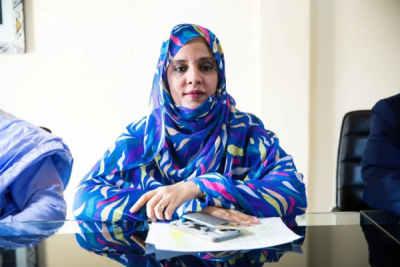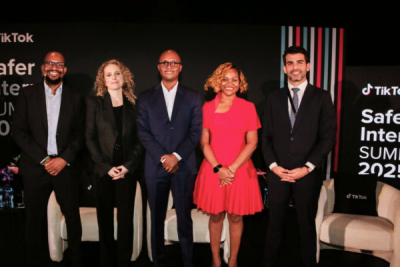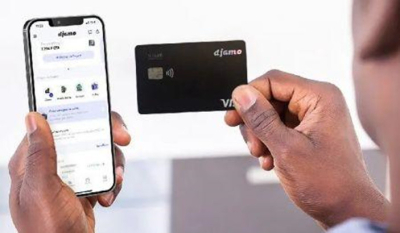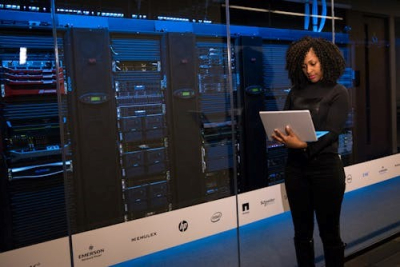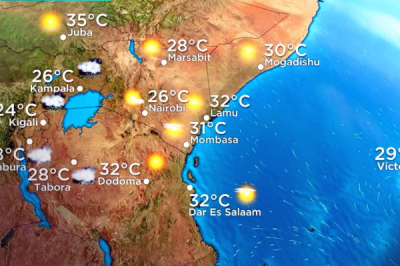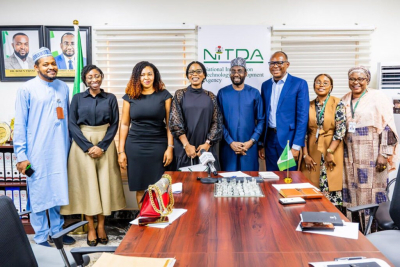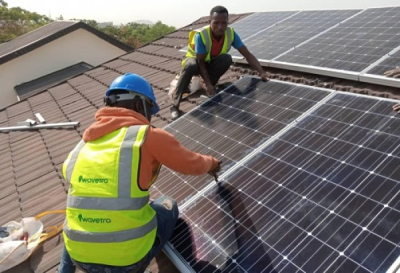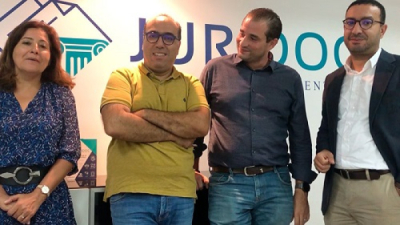The founder of the TechHorizon-Tanzania program, Caroline Mohoni, is passionate about community education. In this interview, she introduces the initiative she currently champions for women in ICT-related matters.
We Are Tech: What is TechHorizon?
Caroline Mohoni: TechHorizon-Tanzania is a program that aims to bridge the digital divide in Tanzania through comprehensive training in digital and ICT skills. It caters to everyone, from those with a background in technology looking to enhance their expertise to those without technological training seeking foundational knowledge to foster innovation for self-employment or improvement in their current endeavors.
TechHorizon offers four services: an online learning platform providing courses in digital skills; community technology centers offering access to digital resources, physical training spaces, and community development activities to address the urban-rural digital gap; practical education workshops in digital skills and mobile technology extending training to remote areas; and a digital empowerment program focused on women and girls, equipping them with digital skills to reduce the gender gap in tech education and employment.
TechHorizon-Tanzania envisions significant empowerment, improved employability, educational progress, and community development. It aligns with SDGs 4 (Quality Education), 5 (Gender Equality), and 8 (Decent Work and Economic Growth).
We Are Tech: What inspired the creation of TechHorizon Tanzania?
Caroline Mohoni: The program, initially named "ICT Basic Skills with Caroo," was born in September 2021 after realizing that 60% of Tanzanians lack basic digital skills, with rural areas being even more disadvantaged as 80% of people in those areas have no access to digital technologies. Women, in particular, are disproportionately affected, with only 13% having access to the internet compared to 21% of men.
We Are Tech: What has the program achieved so far?
Caroline Mohoni: Regarding user enrollment and engagement, we have over 262 trainees who have been trained via online platforms (Zoom, Google Meet, Teams) and Vide App, a mobile application for educational content creators. As of October 2023, we have seen an impressive 28% increase in enrollments in the last 4 months. Post-training evaluations indicate an average improvement of 73% in participants' digital skills where they study or work. Our women-focused digital empowerment program has resulted in a 34% increase in women's professional participation, narrowing the gender gap in digital skills.
We Are Tech: What challenges do you face in your activities in Tanzania?
Caroline Mohoni: While striving to have a significant impact in Tanzania, TechHorizon still faces challenges such as a lack of essential services like internet connectivity and access to quality electricity in rural areas. This affects the accessibility and effectiveness of digital training initiatives. Our limited financial resources also hinder the scalability and reach of TechHorizon programs, impacting the depth and breadth of the impact our programs aim for. Cultural barriers also present a significant challenge. Cultural perceptions and attitudes toward technology and education hinder the acceptance or participation of populations in digital literacy programs, especially among certain demographic groups or in specific regions. Some societal considerations also impede women and girls from pursuing further education or careers in technology. Addressing these challenges requires a multidimensional approach, adaptive strategies, collaboration with communities and local authorities, and a commitment to long-term sustainability. At TechHorizon, we continuously work to overcome these challenges to maximize our impact and efficiency in Tanzania.
We Are Tech: What do you need to make your actions more efficient?
Caroline Mohoni: Our needs come in various forms. Adequate funding is crucial to expand programs, reach more communities, improve infrastructure, and support ongoing initiatives. We hope for the government to upgrade technological infrastructure, especially in rural areas, as it is essential to ensure reliable internet connectivity and access to necessary training resources for populations in these areas. A firm collaboration with local organizations, businesses, and government agencies can amplify our impact, facilitate community engagement, and streamline program implementation.
We Are Tech: What are your plans for the future?
Caroline Mohoni: TechHorizon has short-, medium-, and long-term goals, aiming to create a sustainable impact on Tanzanian communities.
Within two years, we aim to expand the reach of our digital literacy programs to more regions, focusing on rural and underserved areas; significantly increase enrollments in our training programs, especially among women and marginalized communities; advocate for effective improvement of technological infrastructure in targeted areas to ensure reliable connectivity for learning.
Within five years, we aim to strengthen existing programs to deepen their impact on participants by providing advanced skills and specialized training, develop strategies for program sustainability, including partnerships with local stakeholders, capacity building, and financial planning, build stronger ties within communities through technology hubs, encouraging collaboration and community initiatives.
Beyond five years, we aim to expand our initiatives nationally, establishing a more extensive network of community technology centers and mobile technology workshops across Tanzania. We also aim to make progress in reducing the gender gap in technology education and employment by aiming for more equal representation in the tech sector. Finally, we want to advocate for policies supporting digital inclusion, targeting government support and initiatives further reducing the digital divide in Tanzania.
Background:
Certified Information Systems Auditor (CISA) Caroline Mohoni works at Mkombozi Commercial Bank PLC as the Manager of ICT Audit. She is currently pursuing a Master of Business Administration in Information Technology at the Institute of Accountancy Arusha. A former employee of KPMG East Africa and the e-Government Authority (e-GA), she has made a mark in the local digital scene over the years through various achievements and accolades. She is a member of cohort 47 of the Young African Leaders Initiative (YALI) and the youth advisory council of DOT Tanzania. While still a student, in 2019, she developed a water vending system controlled by a mobile phone and integrated with a water quality monitoring device as part of the cooperation between the University of Dar es Salaam and KTH University in Sweden under the DAWASA project to address water issues in Tanzania. In 2020, she was among the 100 Tanzanian Sheroes. In March 2022, she was awarded by the Next Einstein Forum as part of the Woman Emerging Careers Awards.



